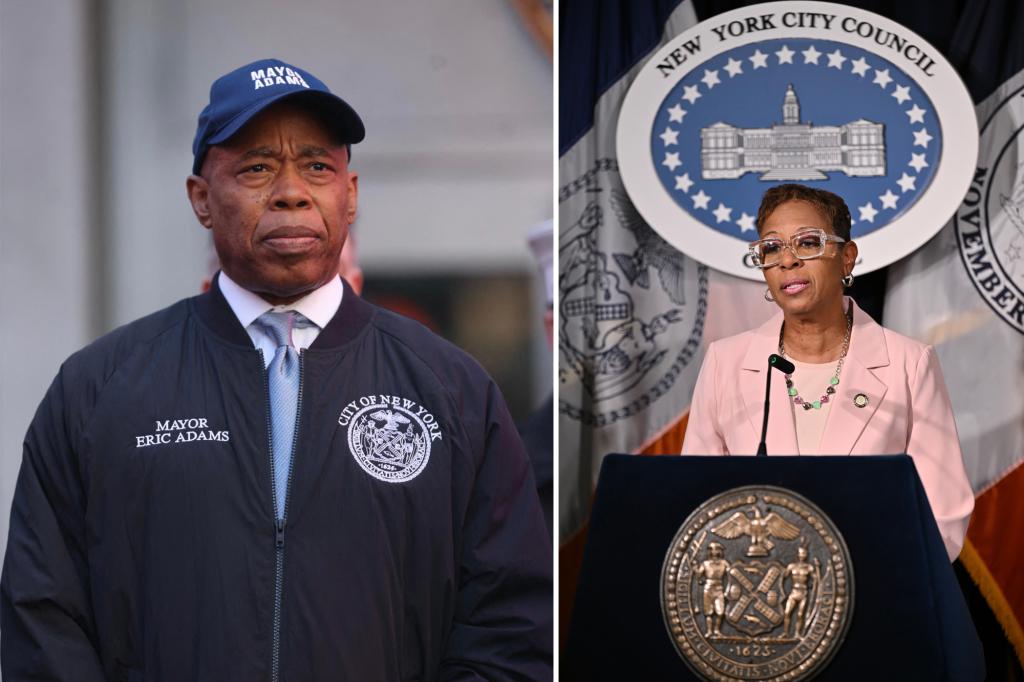The New York City Council is on the verge of enacting legislation to broaden the scope of lobbying restrictions, encompassing a wider range of influential figures within the Mayor’s office after their departure from government service. This move aims to curb potential influence peddling by former officials, but notably excludes members and staff of the Council itself. Championed by Councilman Lincoln Restler, the bill seeks to extend the existing two-year ban on lobbying city officials to a greater number of ex-City Hall decision-makers, a measure prompted in part by recent corruption charges against Mayor Eric Adams and several of his former aides.
The proposed legislation comes amidst a backdrop of ethical concerns surrounding the Adams administration. The mayor faces federal corruption and bribery charges, and several of his former top aides have either resigned under a cloud of suspicion or face criminal charges. While Mayor Adams expresses support for expanding the lobbying ban as a good government initiative, his administration criticizes the Council for exempting its own members and staff from the same restrictions. A mayoral spokesperson characterizes this exclusion as a “rules for thee but not for me” approach and laments the Council’s unwillingness to hold itself to the same standards it seeks to impose on the executive branch.
The Council’s proposed expansion of the lobbying ban targets key figures in the Mayor’s office, including the Chief of Staff, Communication Director, Press Secretary, Senior Advisors reporting directly to the Mayor, Director of Intergovernmental Affairs, Chief Counsel, Chiefs of Staff to Deputy Mayors, and Deputy Chiefs of Staff to the Mayor’s Chief of Staff. By focusing on these high-ranking officials, the legislation aims to prevent undue influence stemming from their previous positions of power. These individuals hold significant sway over personnel decisions, policy development, and budget allocation within city agencies, making them prime targets for lobbying efforts.
The Mayor’s office also raises concerns about the legislation’s limited scope, noting that it does not extend to other citywide elected officials, such as the Comptroller, Public Advocate, and Council Speaker. Such an expansion would require a voter referendum. Furthermore, the bill does not include key members of the Council Speaker’s staff, such as the Chief of Staff, Deputy Chief of Staff, and Chief General Counsel. The administration argues that this omission undermines the bill’s effectiveness and creates an uneven playing field.
Councilman Restler, the bill’s sponsor, counters the Mayor’s criticism by pointing to the irony of the scandal-plagued Adams administration lecturing lawmakers on conflicts of interest. He cites the controversial consulting business of Adams’ former Chief of Staff, Frank Carone, as a motivating factor behind the legislation. Restler argues that the bill specifically targets the most powerful individuals in city government to prevent a recurrence of the alleged corruption associated with the Adams administration.
The proposed legislation highlights an ongoing power struggle between Mayor Adams and the City Council, led by Speaker Adrienne Adams. The two branches of government have clashed on various policy issues, including police accountability and the handling of the migrant crisis. This latest dispute over lobbying restrictions underscores the tension between the executive and legislative branches and reflects a broader debate about ethics and transparency in city government. The Council’s move to expand lobbying restrictions, while excluding its own members, raises questions about the sincerity of its commitment to good governance and leaves room for accusations of political maneuvering. The Mayor’s office, facing its own ethical challenges, criticizes the Council’s selective approach, further complicating the issue and potentially hindering meaningful reform.


